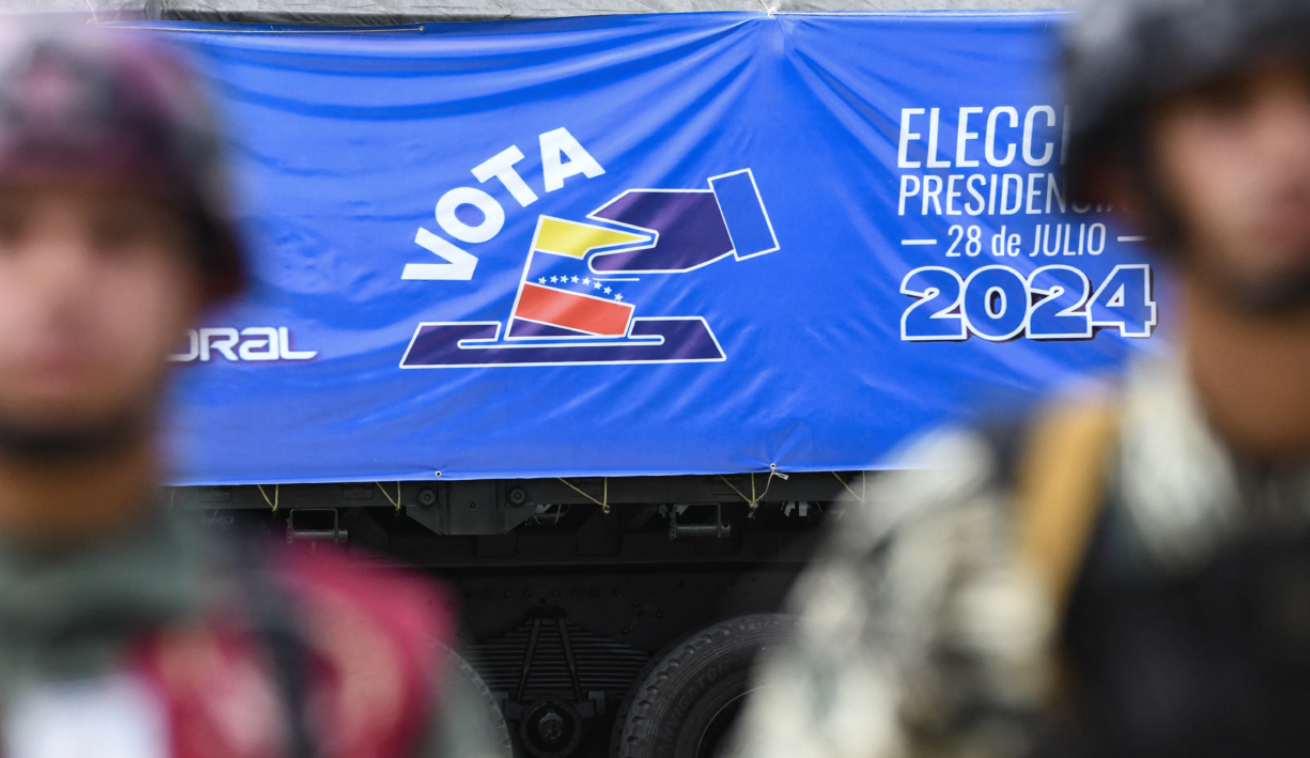The expectation of an opposition victory in the elections on July 28, 2024, was high. Recognized polls projected a wide victory for Edmundo Gonzalez Urrutia, the candidate of the Unitary Platform, supported by Maria Corina Machado, the winner of the opposition primaries in October 2023. Anticipating a considerable gap between the opposition and the government did not seem unreasonable, given the deep dissatisfaction with the government’s management and the absence of freedoms that had been reflected in the polls over the last few years.
The collective expectation and sensation of being able to triumph in the elections was built throughout the last months during an atypical campaign, marked by the authoritarian context. A broad sector of Venezuelan society managed to take ownership of the electoral process, overcoming multiple obstacles, to express their discontent and desire for change. However, in the early morning of July 29, the National Electoral Council, composed of a majority loyal to the governing party, announced the victory of Nicolás Maduro. Was it useful to participate, despite the anticipated risks of fraud? What lessons has the electoral process taught so far?
For more than two decades, the anti-Chavista camp has been fragmented in its strategic preferences in the quest for power. While some sectors have prioritized institutional mechanisms, others have promoted internal or external pressure routes to reach the Miraflores palace. However, for this electoral process, the Venezuelan opposition converged in the strategy to confront the candidate of the governing party.
In the early morning of July 29, the electoral body announced the victory of Nicolás Maduro, who was proclaimed president hours later. The announcement, contrary to the feeling of collective victory, produced first an overwhelming silence and then collective indignation throughout the country. In several towns and cities small protests and pots and pans erupted in popular sectors demanding respect for the will expressed at the ballot box. The vote has been the catalyst to express and channel the hope for change in Venezuela. Let’s see.
One of the most significant impacts of the decision to participate in the election has been the activation of Venezuelan society, often spontaneously and outside the political parties. After the failure of the “interim government” (2019-2022) and the limited results in the regional elections of 2021 due to the fragmentation of the opposition vote, the opposition primary process revitalized the collective spirit. Mobilizing around a shared purpose, such as a presidential election, gave a perspective of change to broad social sectors.
Likewise, it is worth mentioning that the opposition primaries and elections stimulated the governing party to re-engage its disenchanted bases, equally affected by the crisis, among new offers, unfulfilled promises and intimidation tactics, the Chavista elites have tried to close ranks among their cadres and bases, ignoring the desire for change, even among their sympathizers. The decision to participate in the presidential electoral process, after the electoral boycott in 2018 and several years of “interim government”, through an attractive candidacy elected in primaries, but disqualified, and another consensual one allowed various sectors of the population to become enthusiastic about the possibility of change and to see themselves as agents of that process. Since October 2023, despite all the existing obstacles and costs, a part of society became active in an autonomous and spontaneous manner, while a series of already existing organizations deepened their networking and mobilized around Machado. The decision to participate and vote energized citizen engagement and activism, creating a sense of empowerment of society vis-à-vis power.
The mobilizations of society around the candidacy of Gonzalez Urrutia, together with Machado and the parties of the Unitary Platform, made visible before and during the elections the weariness with the socioeconomic and political situation of the country. The need and illusion of changing authoritarianism for democracy, the control of the State for liberties, the respect of human rights for abuse and arbitrariness, and the possibility of being reunited with family members was spreading to other sectors of the population that felt apathetic and skeptical. Likewise, the electoral route facilitated the adhesion of groups previously distrustful of some members of the traditional opposition due to their inclination toward abstention or economic sanctions. Several “disgruntled Chavistas” and leftist intellectuals added their support to Gonzalez Urrutia for this electoral cycle. The mobilization around the vote has therefore had a snowball effect.
In addition to energizing the population, the primaries and the mobilization around the election gave an impulse to the parties, affected by the repression, to reorganize and resist in order to channel the existing discontent. The meeting of opposition elites, previously divided over strategy, on the electoral road, has facilitated, for the time being, their coordination around a single candidacy. The return to the electoral arena has allowed the elites to listen and reconnect with the needs of the great majorities. It has made it easier for the leadership to listen and amplify the concerns and aspirations of society. Feeling and seeing first hand the living conditions of the great impoverished majorities throughout the territory seems to have re-sensitized the opposition leadership, forcing it to be more receptive to social demands.
This re-encounter in the peaceful and institutional search for political change seems to have restored, for now, the credibility of the opposition camp before society and international actors, after a long period of failures and stagnation. This point is crucial because, in contrast to strategies of “maximum pressure” or boycott, the electoral route allows international actors and governments, regardless of their ideology, to concretely support the Venezuelan population in its desire for change.
In conclusion, citizen participation in the electoral process has imparted important lessons. It has affirmed the population’s determination in its peaceful pursuit of change. Indeed, it is the Venezuelan society that has embraced the vote as a mechanism to consolidate widespread discontent. Alongside the opposition leadership, they have effectively highlighted to international actors the government’s determination to remain in power. The lack of credibility in the result announced on July 29 and the ongoing societal protests regarding its verification are direct consequences of electoral participation.
The capital and momentum (re)built around the electoral process are valuable and relevant. Preserving and channeling this energy will be the great challenge for the Venezuelan opposition in the times to come.
* This article only represents the opinion of the author.













